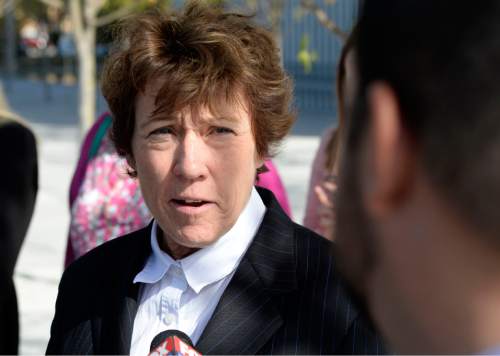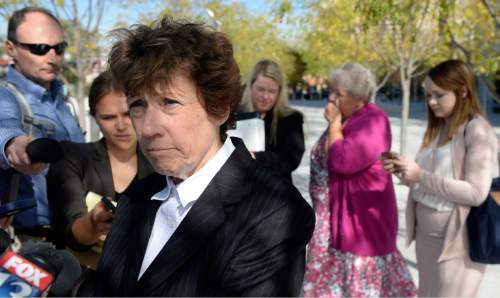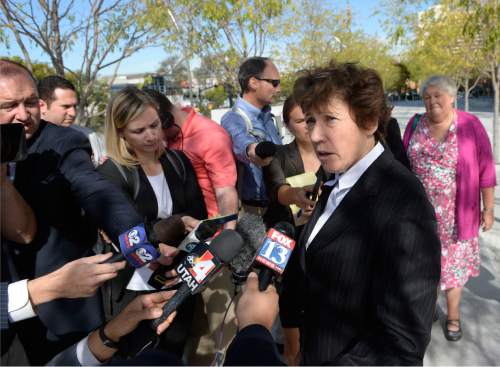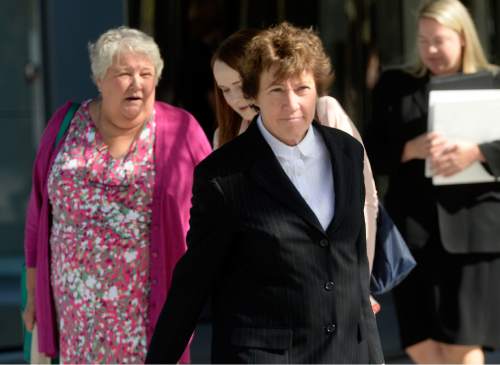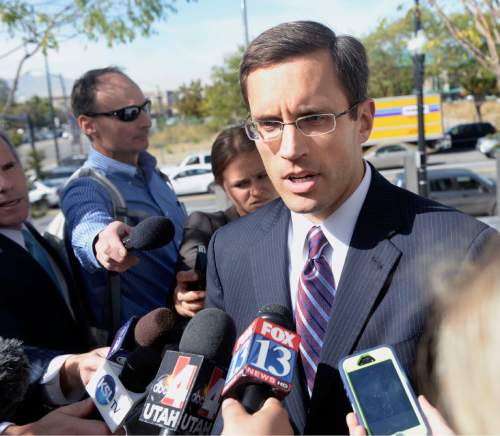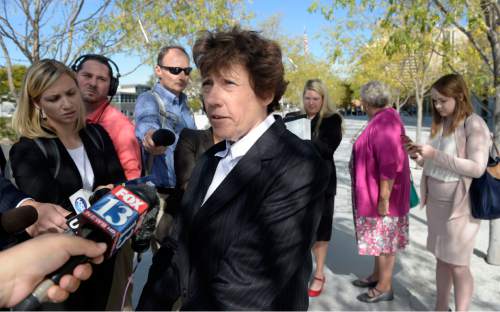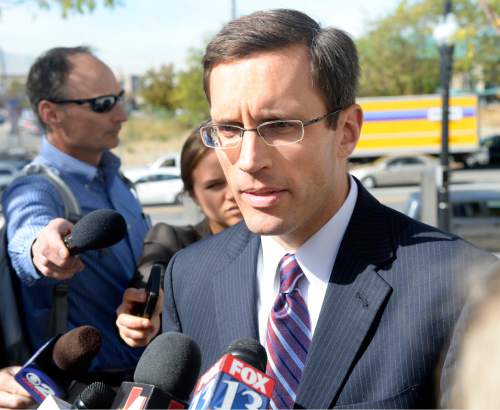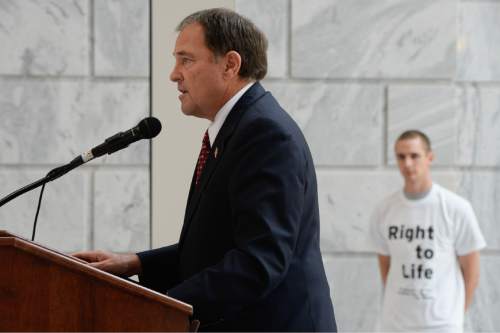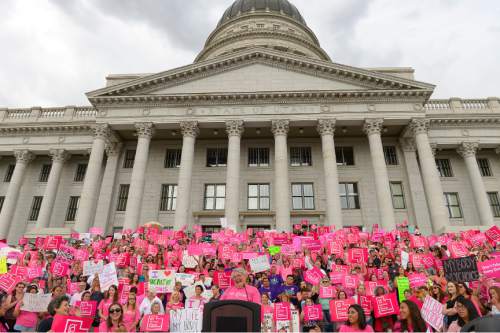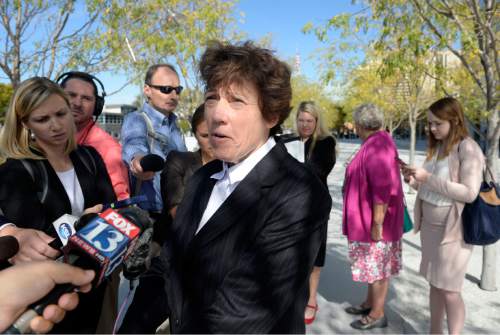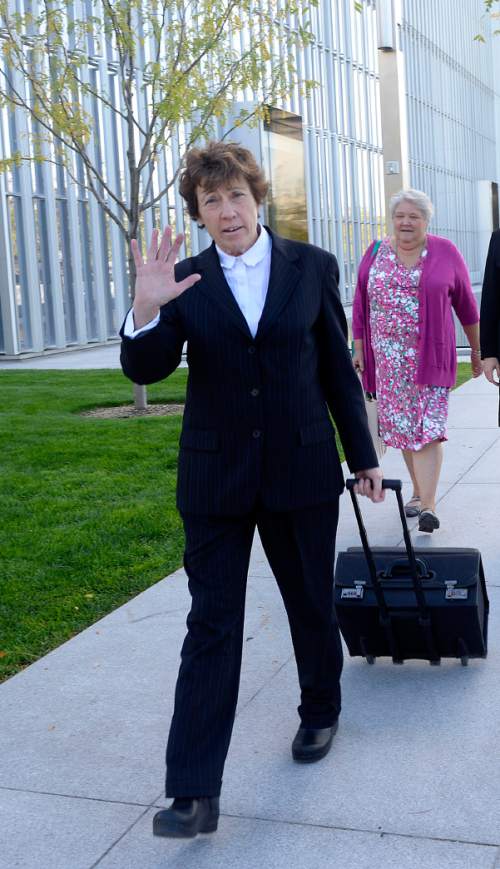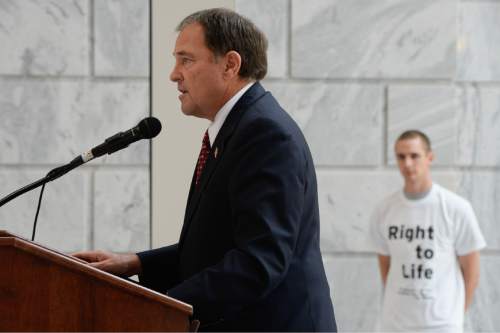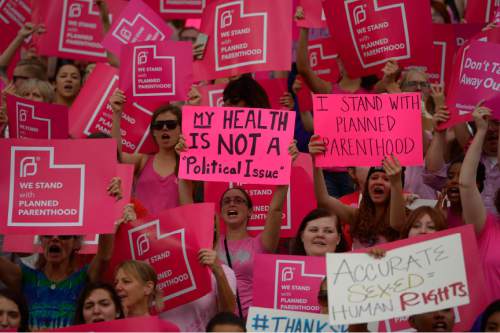This is an archived article that was published on sltrib.com in 2015, and information in the article may be outdated. It is provided only for personal research purposes and may not be reprinted.
Utah will not dam the flow of federal money to Planned Parenthood, at least for now.
The governor's order cutting federal funding to the organization — "a bad idea" that "would hurt the citizens of Utah," according to a top health official — is on hold as a federal judge weighs whether to block it for the long term.
U.S. District Judge Clark Waddoups did not issue a ruling Thursday, saying he would make the decision later.
Planned Parenthood sued Gov. Gary Herbert on Sept. 28, saying his order to stop federal funding passing through the state violated the organization's rights to free speech, equal protection and due process.
Herbert's Aug. 14 directive came in response to the release of videos secretly recorded by a California anti-abortion group. Last week, in response to the suit, he said his order was a reaction to the "casualness" and "callousness" depicted in the recordings of national Planned Parenthood officials describing how they provide fetal tissue from abortions for medical research.
Planned Parenthood attorney Peggy Tomsic said Thursday that Herbert knew Utah Planned Parenthood officials were not involved in the fetal tissue discussions but used the videos as a launchpad for his own political views. The order defamed Planned Parenthood, Tomsic said, because it "sent a message to this community at large that Planned Parenthood is a criminal and deserves to be punished."
Tyler Green, Utah's solicitor general, said the governor did not violate the group's constitutional rights.
"There is nothing objectively unreasonable," Green said, "about the state's decision to terminate the contract."
In their bid for a court-issued temporary stop to the order, Planned Parenthood's attorneys cite multiple emails passed between health department workers in the weeks before and after Herbert's Aug. 14 directive to cut funding, including a message from the Utah Department of Health's deputy director, Robert Rolfs, who said it was "a bad idea and would hurt the citizens of Utah."
Rolfs also requested that his employees help provide the governor with reasons why the funding should not be stopped.
Employees said about 4,400 patients would not be able to receive STD testing without the Planned Parenthood resources, and another 3,700-plus people would be without free STD treatments. One employee noted that the local health departments could take up the STD treatments, but the patients would then be responsible for a $35 fee.
"So free treatment would no longer be free," the employee wrote.
Four days after Herbert's directive, Rolfs emailed the governor's staff, telling them "we can't avoid taking services away from women who would have been helped," but he added that there were some other options that might be less damaging.
Green said it's the state's right to cut ties with a group if the organization has associates that are alleged to have broken the law.
Green said the governor has discretion over such contracts, in this case for an after-school sex-education program, a network that monitors sexually transmitted diseases, and an STD testing program.
"These arguments ignore reality," Tomsic said. The more than $200,000 "is significant money" to the nonprofit, she added, though it is a small slice of the Utah organization's $8 million budget.
Planned Parenthood of Utah CEO Karrie Galloway declined to talk to reporters after Thursday's hearing but issued a statement saying she was confident Waddoups would rule in Planned Parenthood's favor.
"Let's be clear: Politics should never interfere with access to health care nor education," the statement read, "and the governor's misguided attempt to cut off these programs is based solely on his own personal extremist views about women's health care."
After Planned Parenthood sued, Waddoups put a two-week hold on Herbert's order, but that expired Thursday.
The health department restored those contracts through the end of the year, allowing the programs to operate as attorneys debate. But the judge could decide to allow the state to cut the contracts before then.
Utah is not the only state to target Planned Parenthood this year. Alabama, Arkansas and New Hampshire also have taken steps to cut funding after the videos were released.
Planned Parenthood has said it recouped expenses for providing tissue to researchers but did not profit, and maintains the videos were edited. The organization announced Oct. 13 it would no longer accept any payments to cover the costs of those programs.
Twitter: @anniebknox
Jessica Miller contributed to this report.


